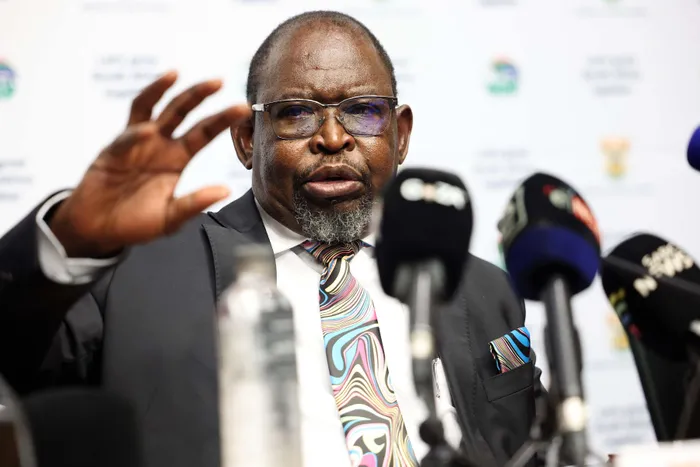Budget: Healthcare crisis in South Africa, Godongwana makes a commitment to frontline services

Finance Minister Enoch Godongwana used his Budget address on Wednesday to commit to improve healthcare in the country.
Image: GCIS
Finance Minister Enoch Godongwana has reaffirmed the government’s commitment to restoring critical frontline health services and investing in infrastructure to improve access to basic healthcare, following a powerful plea from a University of Cape Town medical student.
Delivering his budget on Wednesday, Godongwana revealed that earlier this month, he received a letter from Sarah Stein, a medical student at UCT, detailing the dire conditions healthcare workers face in public hospitals.
Her first-hand account moved the minister and helped reinforce the urgency behind the increased health budget allocations.
“Working in public hospital with way too few resources punches you in the gut every day. It’s not just the trauma of seeing your patient die, it’s having no gloves in a delivery room; no alcohol swabs to clean wounds; and knowing that nurses stop at the shop on their way to work to buy their own gloves and masks because the clinic has run out.
"Where waiting times for a scan are months long, and surgery delays needlessly let disease progress to the point of being inoperable. It’s the limited beds in high care that mean doctors are regularly forced to decide whose life is worth saving more because there’s only space for one,” Stein wrote.
Godongwana said her account was one of the reasons why the budget maintains the spending trajectory presented in the main budget on 12 March.
“Addressing the persistent spending pressures to restore critical frontline services and invest in infrastructure is critical for improving access to basic services and lifting economic prospects,” the minister said.
Over the medium-term expenditure framework (MTEF) period, the provincial health sector budget will total R845 billion. An additional R20.8b will be allocated over three years to employ 800 post-community service doctors, procure essential goods and services, and reduce accruals that have hindered service delivery.
Godongwana said this increase would also help the sector deal with personnel budget pressures that have been growing steadily across provinces.
The Department of Health’s total expenditure is expected to rise to R275.5b in 2025/26, R288.5b in 2026/27, and R301.7b in 2027/28.
This marks a gradual but consistent increase aimed at restoring both infrastructure and human capacity in the public health system.
The overall increase to the health function’s baseline is R7b or 0.85%, from R858.8b in the 2024 MTEF to R865.8b in the 2025 MTEF.
The bulk of the increase, R4.6 billion, will go to the provincial equitable share to support implementation of the 2025 public sector wage agreement.
This will ease the salary pressures that have led to understaffing, particularly in rural and high-pressure facilities.
Godongwana also outlined the future of National Health Insurance (NHI) funding, with R858m allocated to the NHI indirect grant in 2025/26 and R259 million in 2026/27.
While the amounts remain modest compared to the scale of the NHI rollout, they represent continued state backing of the controversial universal healthcare project.
The Finance Minister said stories like Stein’s highlight the real-world impact of funding decisions and the urgency of getting resources to the frontline.
mandilakhe.tshwete@inl.co.za

Finance Minister Enoch Godongwana pledges to improve healthcare.
Image: GCIS
Related Topics:
